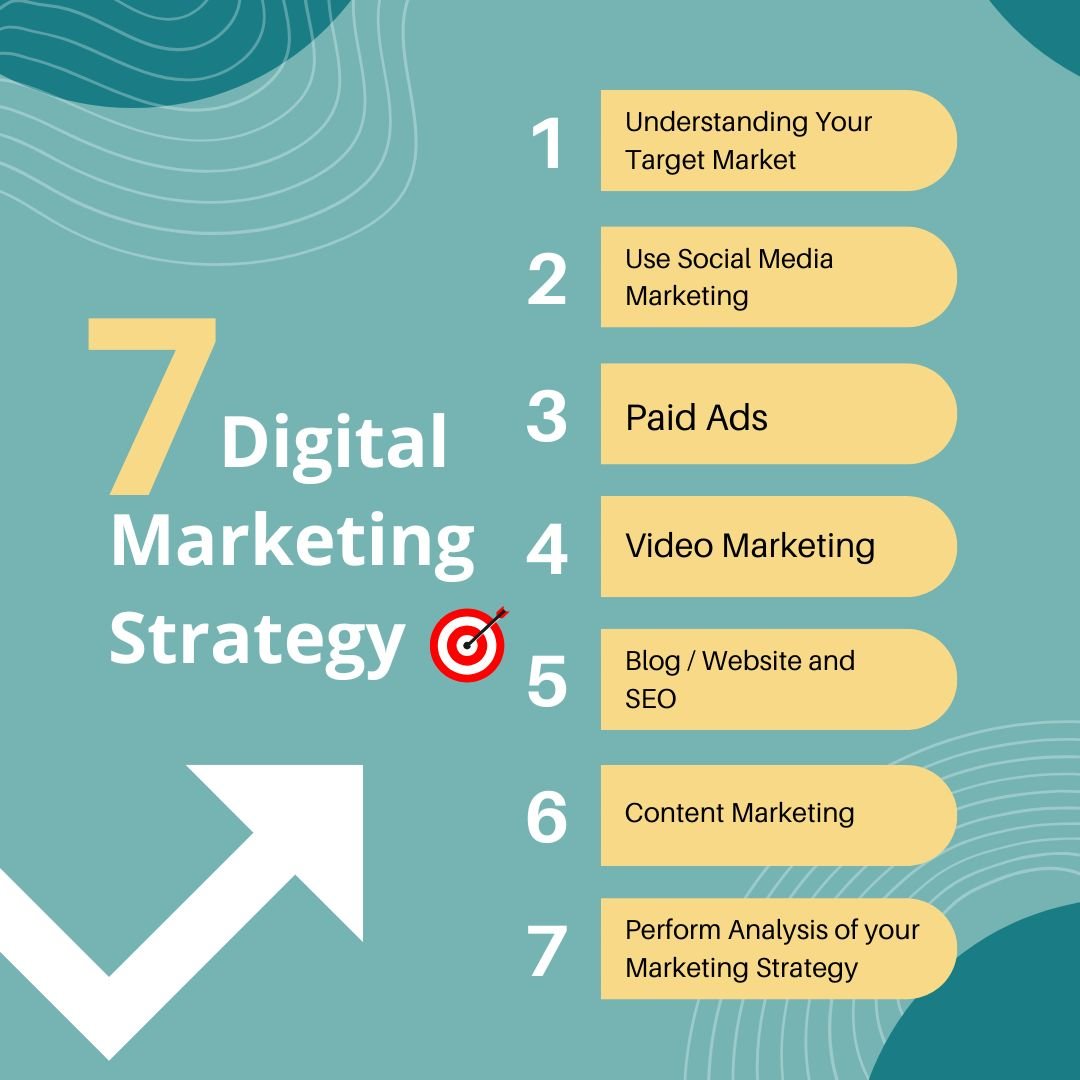Must Have Digital Marketing Plan for your Business

Must Have Digital Marketing Plan for your Business
In today’s competitive online space, having a well-structured digital marketing plan is crucial for achieving higher search rankings on Google. A strong strategy ensures brand awareness, increased website traffic, and improved conversions. In this blog, we’ll break down a comprehensive digital marketing plan that helps your business grow online.
1. Define Your Objectives
Setting clear goals is the first step in crafting a powerful digital marketing plan. Common objectives include:
- Increasing brand visibility
- Driving more website traffic
- Generating leads and conversions
- Boosting customer engagement
- Strengthening social media presence
2. Understand Your Target Audience
A successful digital marketing strategy revolves around knowing your audience. Define your target market based on:
- Demographics: Age, gender, location, income level
- Psychographics: Interests, behaviors, lifestyle choices
- Buyer Personas: Create detailed profiles representing your ideal customers
3. Key Digital Marketing Channels to Focus On
A. Search Engine Optimization (SEO)
SEO is essential for ranking higher on Google. Focus on:
- Keyword research and implementation
- On-page SEO (title tags, meta descriptions, internal linking)
- Off-page SEO (backlink strategy, guest posting)
- Technical SEO (site speed, mobile responsiveness)
B. Content Marketing
Content is king when it comes to Google rankings. Utilize:
- Blog posts, long-form articles, and whitepapers
- Engaging infographics and videos
- E-books and case studies to establish authority
C. Social Media Marketing
Leverage social media platforms to drive traffic and engagement:
- Utilize platforms like Facebook, Instagram, LinkedIn, Twitter, and TikTok
- Engage with the audience through polls, contests, and live sessions
- Run targeted advertising campaigns for maximum reach
D. Email Marketing
Email marketing helps nurture leads and drive conversions:
- Design engaging newsletters
- Set up automated email sequences (welcome, cart abandonment, re-engagement)
- Personalize email content based on user behavior
E. Pay-Per-Click (PPC) Advertising
For quick results, PPC campaigns can enhance visibility:
- Use Google Ads and Bing Ads
- Create compelling social media ad campaigns
- Utilize retargeting to recapture lost leads
F. Influencer & Affiliate Marketing
Partnering with influencers and affiliates can enhance credibility and sales:
- Collaborate with influencers in your industry
- Establish an affiliate program for brand advocacy
G. Website & Conversion Rate Optimization (CRO)
Optimize your website for user experience and conversions:
- Ensure mobile-friendly design
- Improve navigation and UX
- Optimize landing pages for better conversion rates
4. Budget Allocation for Maximum ROI
| Digital Channel | Budget Allocation (%) |
|---|---|
| SEO | 20% |
| Content Marketing | 15% |
| Social Media Marketing | 20% |
| Email Marketing | 10% |
| PPC Advertising | 25% |
| Influencer Marketing | 10% |
5. Track Performance with KPIs
Monitoring key metrics ensures continuous improvement. Track:
| Metric | KPI Example |
|---|---|
| Website Traffic | Increase visitors by 30% |
| Lead Generation | Capture 500 leads per month |
| Social Engagement | Maintain 5%+ engagement rate |
| Conversion Rate | Improve by 10% |
| Email Open Rate | Keep above 25% |
6. Implementation Timeline
| Timeline Stage | Activities |
|---|---|
| Month 1-2 | Research & strategy development |
| Month 3-4 | Content creation & SEO efforts |
| Month 5-6 | Launch PPC & social media ads |
| Month 7+ | Optimize and refine strategy |
7. Must-Have Digital Marketing Tools
- SEO Analysis: Google Analytics, SEMrush, Ahrefs
- Social Media Management: Hootsuite, Buffer, Meta Business Suite
- Email Marketing: Mailchimp, HubSpot
- PPC Management: Google Ads, Facebook Ads Manager
- Performance Tracking: Google Data Studio, Heatmaps
Conclusion
A well-executed digital marketing plan is key to ranking higher on Google and achieving sustainable growth. By leveraging SEO, content marketing, PPC, and social media strategies, businesses can maximize their online presence and drive measurable results. Regular analysis and optimization will ensure long-term success.
Infographics You Should Use:
- SEO Strategy Roadmap – Step-by-step guide to optimizing your site
- Content Marketing Funnel – Awareness, Consideration, Conversion
- Social Media Posting Calendar – Best times to post for engagement
- PPC Campaign Checklist – Must-have elements for a successful ad
- Lead Nurturing Email Workflow – Effective email automation flow
By implementing this digital marketing plan, your business is sure to gain visibility and improve Google rankings effectively. Want personalized recommendations? Contact us today!
Hi, this is a comment.
To get started with moderating, editing, and deleting comments, please visit the Comments screen in the dashboard.
Commenter avatars come from Gravatar.